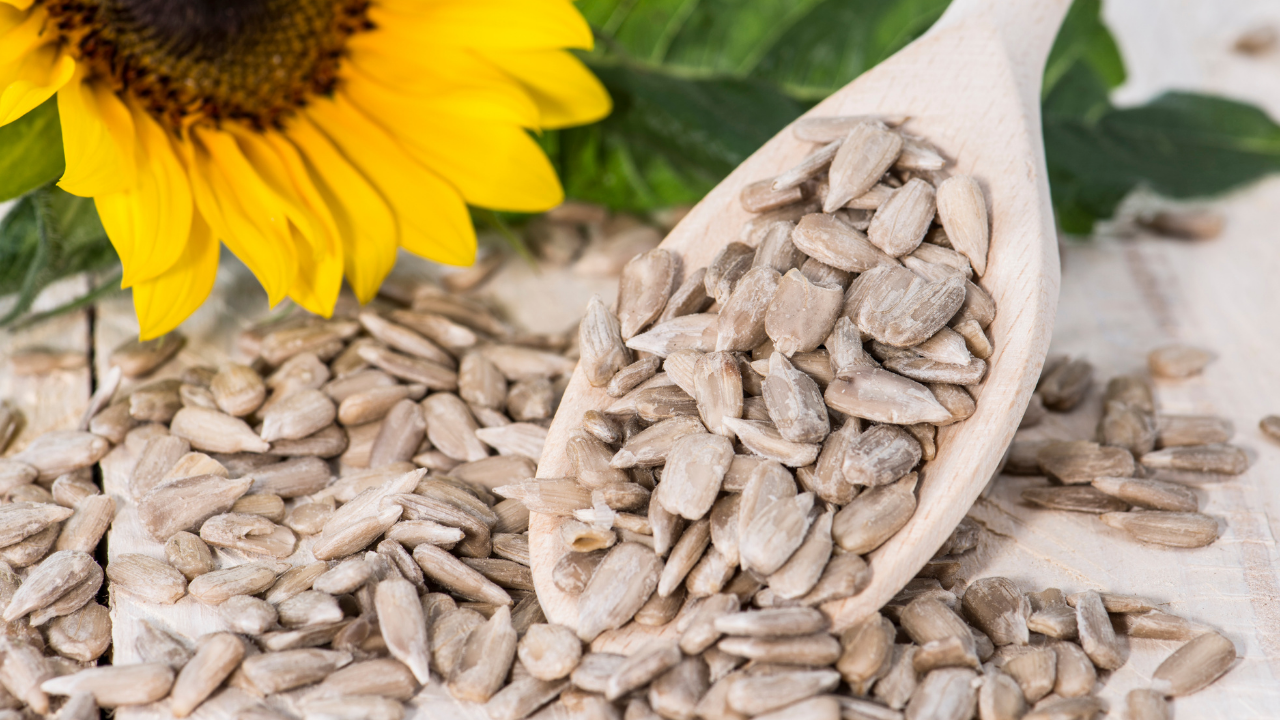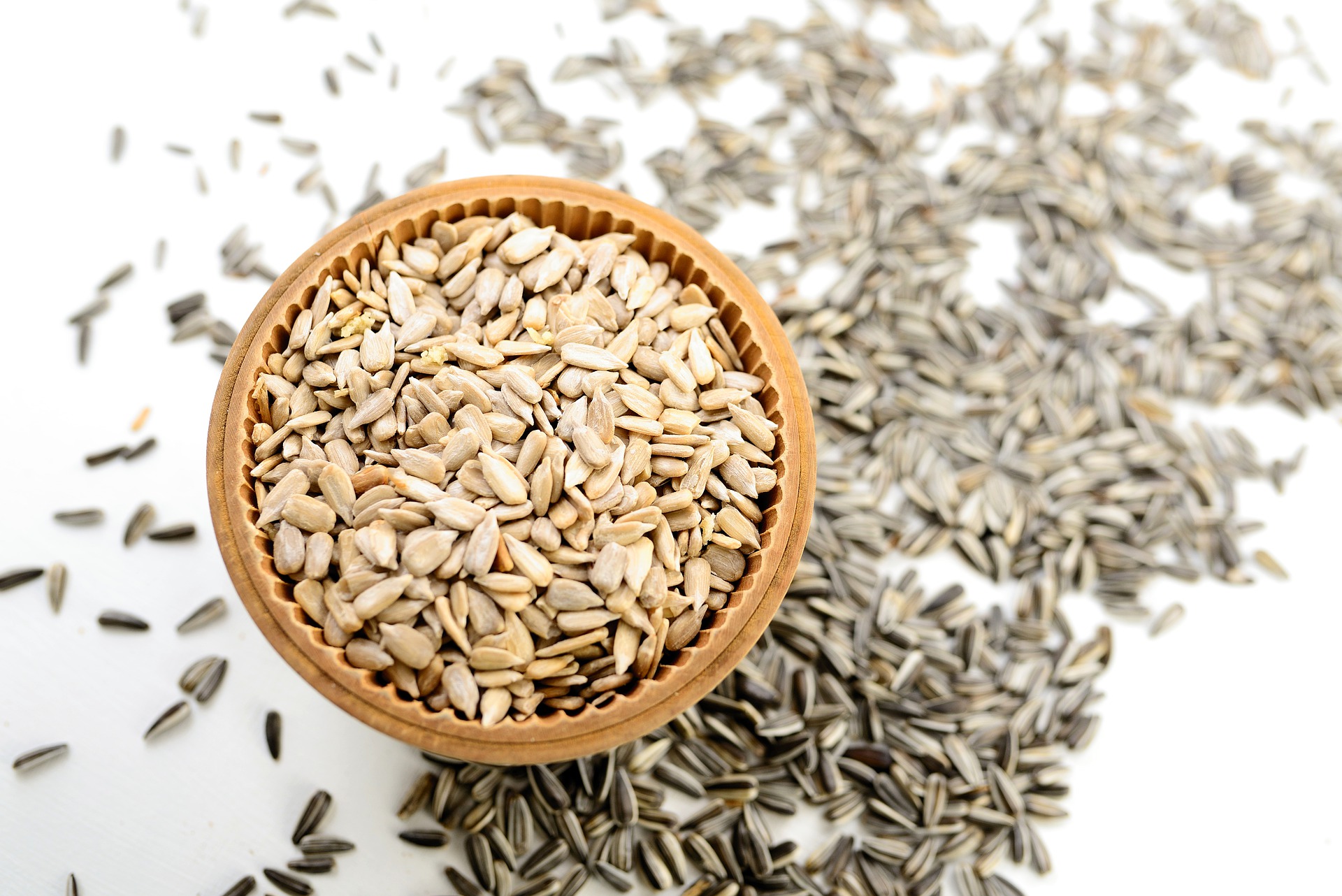9 health and Nutritional benefits of sunflower seeds.
Sunflower
seeds are probably the most familiar of all edible seeds. they are the tightly
packed core of the glorious sunflower.
The sunflower is believed to have originated in Mexico area. Sunflower was introduced in Europe in the 16th century.

Nutrition benefits of sunflower seeds
Sunflower kernels are well above average in protein, phosphorus and iron concentration. They are very good sources of B complex vitamins.
Sunflower seeds kernels are an excellent protein food and can be considered as complete food. Contains almost 50% fat which makes them highly satisfying foods, that prevents the let-down feeling of fatigue and weariness which are due to eating too much carbohydrates and sugar.
Being rich in potassium the seeds help balance the sodium in our diets, thereby protecting the body from dangers of too much salt in tissue.
Due to high magnesium content, it helps the heart and other muscle as well as normal nervous tissue in the maintenance of proper balance between magnesium and calcium.
Sunflower seeds are very high in vitamin E and selenium. These are antioxidants and help protect the body from free radicle damage.

high cholesterol
The seeds contain substantial quantity or linoleic acid which is unsaturated fatty acid, helpful in reducing cholesterol deposits on the walls of arteries. Substituting sunflower seeds for some of the solid part like butter and cream will, therefore lead to great improvement in health.
Inflammation
The seeds are high in vitamin E and flavonoids., Due to its flavonoids and vitamin E content it helps in lowering the C- reactive protein, which in turn reduces inflammation.
High Blood Pressure
Sunflower seeds are rich in Magnesium and linoleic acid (unsaturated fatty acid). Both of these helps in relaxing the blood vessels and promoting low blood pressure.
Diabetes
Sunflower seeds also help in lowering blood sugar due to the compound chlorogenic acid present in them. Studies suggest that when the seeds are added to the bread, it helps in reducing the carbohydrate effect on the blood sugar.
Beriberi and Pellagra
As they are rich in thiamine and niacin in sunflower seeds help to protect the health of nerves and brain as well as skin and digestive tract. Lack of vitamins B1 and B3 causes deficiency like beriberi and pellagra.
Anaemia
The seeds are one of the richest sources of iron in any food it is therefore highly beneficial in the prevention and treatment of anaemia.
Respiratory disorders
Taking powder seeds as a decoction is one of the remedies for bronchitis, laryngitis, tonsillitis influenza and cough. it is believed that growing sunflower in the home garden prevent influenza and cold.
USES
Sunflower seeds can be used to enrich any meal. they can be sprinkled over cereal, yoghurt, soup and salads.
They can be mixed with vegetable to augment their protein, vitamin and mineral content they can be used like as chopped nuts on Desert they can be also taken as snack between meals.
The best way to eat sunflower seeds are by sprouting. Sprouting increases the beneficial plant compounds like phenolic acid and flavonoids and decreases the factors that interfere with mineral absorption.
Precaution
Don’t eat more than 1 ounce (30 gram) of sunflower seeds per day. As they high in calories and also have cadmium (heavy metal), which can harm our kidneys if eaten too much for a longer time.



